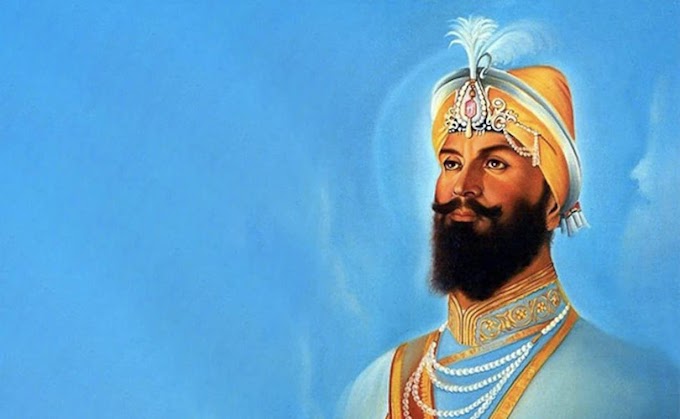Guru Gobind Singh Jayanti is a significant holiday in the Sikh religion, celebrated to mark the birth anniversary of Guru Gobind Singh, the tenth Sikh guru. Guru Gobind Singh is considered to be one of the most important figures in Sikh history, as he played a crucial role in shaping the Sikh faith and culture.
Guru Gobind Singh was born on December 22, 1666, in Patna, Bihar, India. He was the son of Guru Tegh Bahadur, the ninth Sikh guru, and was named Gobind Rai at birth. Guru Gobind Singh was only nine years old when his father was martyred by the Mughal Emperor Aurangzeb for refusing to convert to Islam. After his father's death, Guru Gobind Singh succeeded him as the tenth guru of the Sikhs.
Guru Gobind Singh was a strong and influential leader who worked to unify the Sikh community and defend it against persecution. He is known for his military campaigns against the Mughals and his efforts to establish the Khalsa, a community of initiated Sikhs who adhere to a strict code of conduct. Guru Gobind Singh is also credited with composing the Sikh scripture, the Guru Granth Sahib, which is considered the eternal guru of the Sikhs.
Guru Gobind Singh Jayanti is celebrated with great joy and reverence by Sikhs around the world. On this day, Sikhs attend special prayers and ceremonies at their local gurdwaras (Sikh temples). They also sing hymns and recite passages from the Guru Granth Sahib, and offer donations and food to the poor. Guru Gobind Singh Jayanti is a time for Sikhs to remember the teachings and contributions of Guru Gobind Singh, and to reaffirm their commitment to the principles of the Sikh faith.
In conclusion, Guru Gobind Singh Jayanti is a significant holiday in the Sikh religion, celebrated to honor the birth anniversary of Guru Gobind Singh, the tenth Sikh guru. Guru Gobind Singh is remembered for his leadership, military campaigns, and contributions to the Sikh faith, and his birthday is celebrated with prayers, hymns, and acts of charity.
Guru Gobind Singh was a visionary leader who played a crucial role in the development of the Sikh religion and culture. In addition to his military campaigns and his work on the Guru Granth Sahib, Guru Gobind Singh is also known for his contributions to the spiritual and philosophical foundations of Sikhism.
One of the most important contributions of Guru Gobind Singh was the establishment of the Khalsa, a community of initiated Sikhs who follow a strict code of conduct known as the "Five Ks." The Five Ks are:
1. Kesh: uncut hair, which is a symbol of Sikh identity and a sign of submission to God
2. Kangha: a small wooden comb, which represents cleanliness and discipline
3. Kara: a steel bracelet, which represents commitment to God and the Sikh community
4. Kachera: a special type of underwear, which represents modesty and self-control
5. Kirpan: a sword, which represents the need to defend one's faith and fight against injustice
Initiated Sikhs are expected to follow the Five Ks and to embody the principles of the Sikh faith, including honesty, compassion, and service to others. Guru Gobind Singh also emphasized the importance of living a life of righteousness and devotion to God, and he encouraged Sikhs to follow the teachings of the Guru Granth Sahib and to serve the community.
Guru Gobind Singh was also a strong advocate for social justice and equality. He spoke out against the caste system and other forms of discrimination, and he worked to uplift the oppressed and marginalized members of society.
In addition to his religious and philosophical contributions, Guru Gobind Singh is also remembered for his military campaigns against the Mughals and other oppressors. He is known for his bravery and leadership in battle, and he is revered by many Sikhs as a warrior saint.
Guru Gobind Singh Jayanti is a time for Sikhs to remember and honor the life and teachings of Guru Gobind Singh. It is a day of celebration and reflection, and a time for Sikhs to reaffirm their commitment to the principles of the Sikh faith.



0 Comments